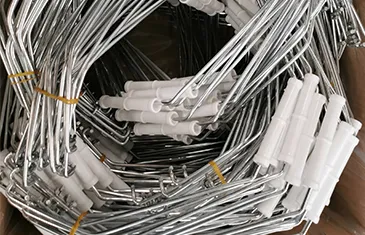-
 Phone:
Phone: -
 Email:
Email:

Wire Mesh Retaining Wall Solutions for Rock Stabilization and Erosion Control
The Advantages of Wire Mesh Rock Retaining Walls
In civil engineering and landscaping, retaining walls play a crucial role in managing soil erosion, supporting structures, and creating usable land on sloped terrain. Among various types of retaining walls, wire mesh rock retaining walls have emerged as a popular choice due to their unique features and benefits. This article delves into the advantages of wire mesh rock retaining walls, their construction process, and their applications.
What is a Wire Mesh Rock Retaining Wall?
A wire mesh rock retaining wall is a structure that uses interconnected wire mesh to hold rock or gravel in place. The wire mesh, typically made of galvanized steel or stainless steel, acts as a containment system that holds the rocks, creating a sturdy and aesthetically pleasing wall. These walls offer flexibility and adaptability, which are vital characteristics for various construction and landscaping projects.
Advantages of Wire Mesh Rock Retaining Walls
1. Erosion Control One of the primary functions of retaining walls is to prevent soil erosion. Wire mesh rock retaining walls effectively restrain soil while allowing water to permeate. This drainage ability reduces the risk of water buildup behind the wall, which can lead to hydrostatic pressure and potential wall failure.
2. Aesthetic Appeal Wire mesh rock retaining walls can be designed to enhance the visual appeal of an area. The natural look of the rocks combined with the industrial aspect of wire mesh creates a harmonious blend that fits well in both rural and urban settings. These walls can be constructed to complement local landscapes, promoting sustainability through a natural design.
3. Cost-Effectiveness Compared to traditional concrete walls, wire mesh rock retaining walls can be a more economical option. The materials used—wire mesh and local rock or gravel—are often less expensive than concrete, and the labor costs are reduced due to the simpler installation process. Additionally, the longevity of the materials used in wire mesh walls reduces the need for frequent replacements or repairs.
4. Flexibility and Adaptability The modular nature of wire mesh rock retaining walls allows them to be adapted to varying slopes and terrain types. This flexibility helps to create customized solutions that conventional walls may not accommodate. They can be designed to fit seamlessly into different landscapes, whether it involves sharp angles or gentle curves.
wire mesh rock retaining wall

5. Eco-Friendliness Using local stones and gravel in wire mesh retaining walls can be a sustainable choice, as it minimizes the carbon footprint associated with transporting materials. Furthermore, these walls promote biodiversity as they allow for vegetation to grow within the rocks, encouraging wildlife habitats and improving the overall ecosystem.
6. Ease of Construction The construction process of wire mesh rock retaining walls is straightforward, requiring less specialized labor compared to traditional retaining walls. They can often be installed quickly, which means projects can progress faster and timelines can be adhered to more efficiently.
7. Stability Despite their lightweight appearance, wire mesh rock retaining walls provide excellent structural support. The interconnected nature of the mesh forms a strong network that can withstand significant loads and pressures. This makes them suitable for various applications, from residential landscaping to heavy-duty construction projects.
Applications of Wire Mesh Rock Retaining Walls
Wire mesh rock retaining walls are versatile and can be utilized in numerous scenarios. They are commonly used in
- Landscaping To create terraces, garden beds, and aesthetic features in residential yards. - Infrastructure Projects Such as highway embankments and bridges where soil stability is crucial. - Flood Control To manage and divert water flow in areas prone to flooding or landslides. - Mining and Quarrying To stabilize waste rock and other materials in mining operations.
Conclusion
Wire mesh rock retaining walls are an excellent choice for various construction and landscaping needs. With their ability to control erosion, cost-effectiveness, aesthetic appeal, and eco-friendly nature, these walls offer numerous advantages over traditional methods. As sustainability becomes increasingly important in modern engineering, solutions like wire mesh rock retaining walls will continue to gain popularity. Whether for practical purposes or enhancing the beauty of a landscape, these structures are proving to be a valuable asset in creating stable and visually appealing environments.
-
Wire Mesh for Every Need: A Practical SolutionNewsJul.25,2025
-
Steel Fences: Durable, Secure, and Stylish OptionsNewsJul.25,2025
-
Roll Top Fencing: A Smart Solution for Safety and SecurityNewsJul.25,2025
-
Cattle Farm Fencing Solutions for Maximum SecurityNewsJul.25,2025
-
Affordable Iron Binding Wire SolutionsNewsJul.25,2025
-
Affordable Galvanized Wire SolutionsNewsJul.25,2025
-
Wire Hanger Recycling IdeasNewsJul.25,2025








